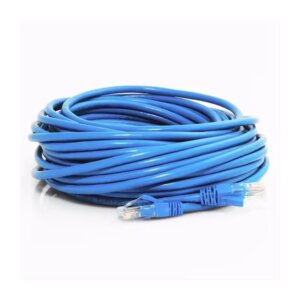If you’re in the business of importing network cables from China, understanding quality standards is not just important—it’s essential. These standards ensure that the products you bring into your market are reliable, safe, and compliant with regulations. In this guide, we’ll walk you through the key quality certifications every importer should know and how they can impact your import decisions.
1. Why Quality Standards Matter in Network Cable Imports?
Quality standards are like a roadmap for manufacturers, helping them create products that meet specific safety and performance criteria. For importers, these standards are crucial for several reasons:
- Product Reliability: By adhering to quality standards, you can trust that the network cables will perform well, reducing the chances of failures and keeping your customers happy.
- Regulatory Compliance: Different markets have their own regulations, and being informed about these can save you from potential headaches down the line.
- Consumer Trust: When your products meet established quality standards, customers are more likely to trust your brand, leading to increased sales and loyalty.
2. Key Certifications Every Importer Should Know
Navigating the world of certifications can be daunting, but understanding these key certifications will empower you to make informed decisions:
ISO 9001: Ensuring Quality Management
- This certification shows that a manufacturer follows international quality management practices, focusing on continuous improvement and customer satisfaction.
RoHS: Commitment to Safety and Environmental Standards
- RoHS compliance restricts hazardous materials in electrical products, making it essential for anyone selling in the European Union.
CE Marking: Compliance with European Regulations
- The CE mark indicates that a product meets safety, health, and environmental protection standards required for sale within the European Economic Area (EEA).
UL Certification: Safety Assurance for North America
- Underwriters Laboratories (UL) tests products for safety risks like fire and electric shock. A UL mark gives your customers peace of mind in North America.
ETL Listed Mark: Recognized Safety Standards
- Similar to UL, the ETL mark means a product has been tested by a Nationally Recognized Testing Laboratory (NRTL) and meets specific safety standards.
CSA Certification: Meeting Canadian Safety Requirements
- The Canadian Standards Association (CSA) certifies electrical products to ensure they comply with safety standards in Canada.
VDE Certification: High Standards in the European Market
- The VDE mark is a German certification that ensures high safety and performance standards in electrical products—perfect for enhancing credibility in Europe.
- Mil-Spec Certification: Adhering to Military Standards
- Military specifications (Mil-Spec) ensure that products meet stringent requirements for military applications—essential if you're working with defense contracts.
3. The Impact of Certifications on Import Decisions
Certifications aren’t just bureaucratic red tape; they play a vital role in your import strategy:
- Market Access: Many certifications are mandatory for selling in specific markets. For instance, RoHS and CE are must-haves for EU markets, while UL is crucial for North America.
- Building Consumer Trust: Certifications boost consumer confidence in your products’ safety and reliability, often translating into higher sales.
- Legal Implications: Failing to comply with required certifications can lead to legal issues or product recalls—definitely something you want to avoid!
4. Conclusion: Making Informed Decisions as an Importer
For anyone importing network cables from China, understanding quality certifications is key. These certifications not only ensure compliance with international standards but also enhance product quality and build consumer trust. By partnering with certified suppliers, you can navigate global trade complexities more effectively while delivering top-notch products to your customers.
